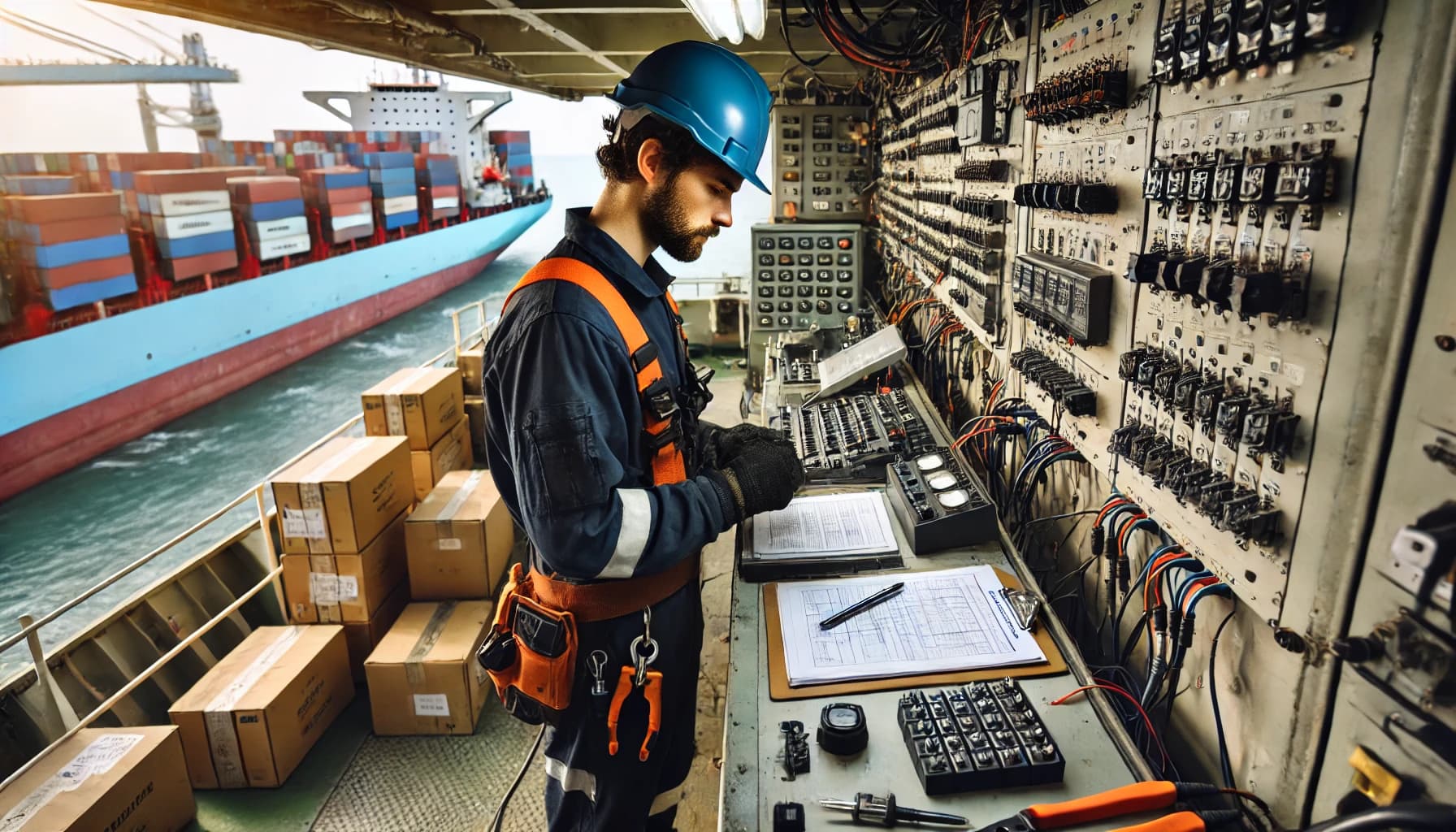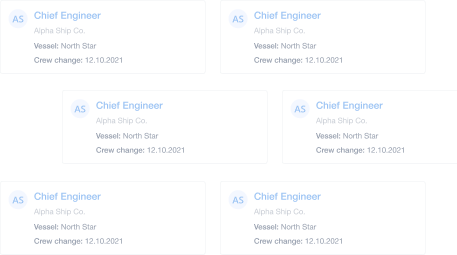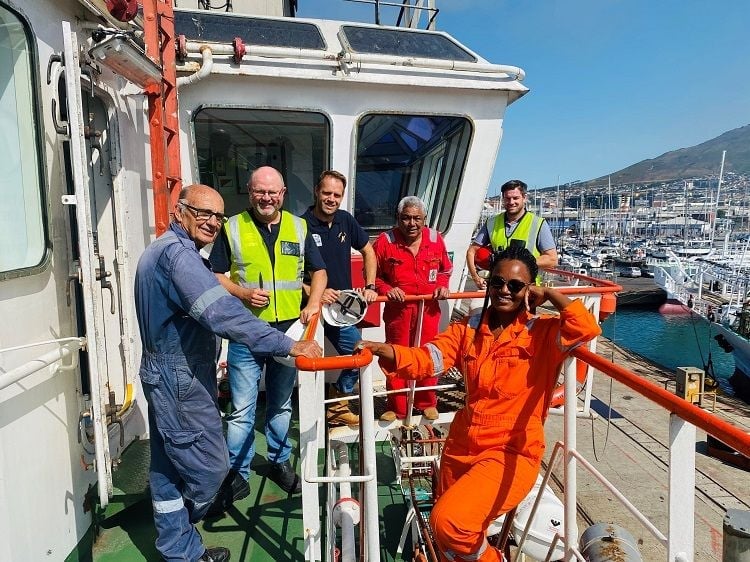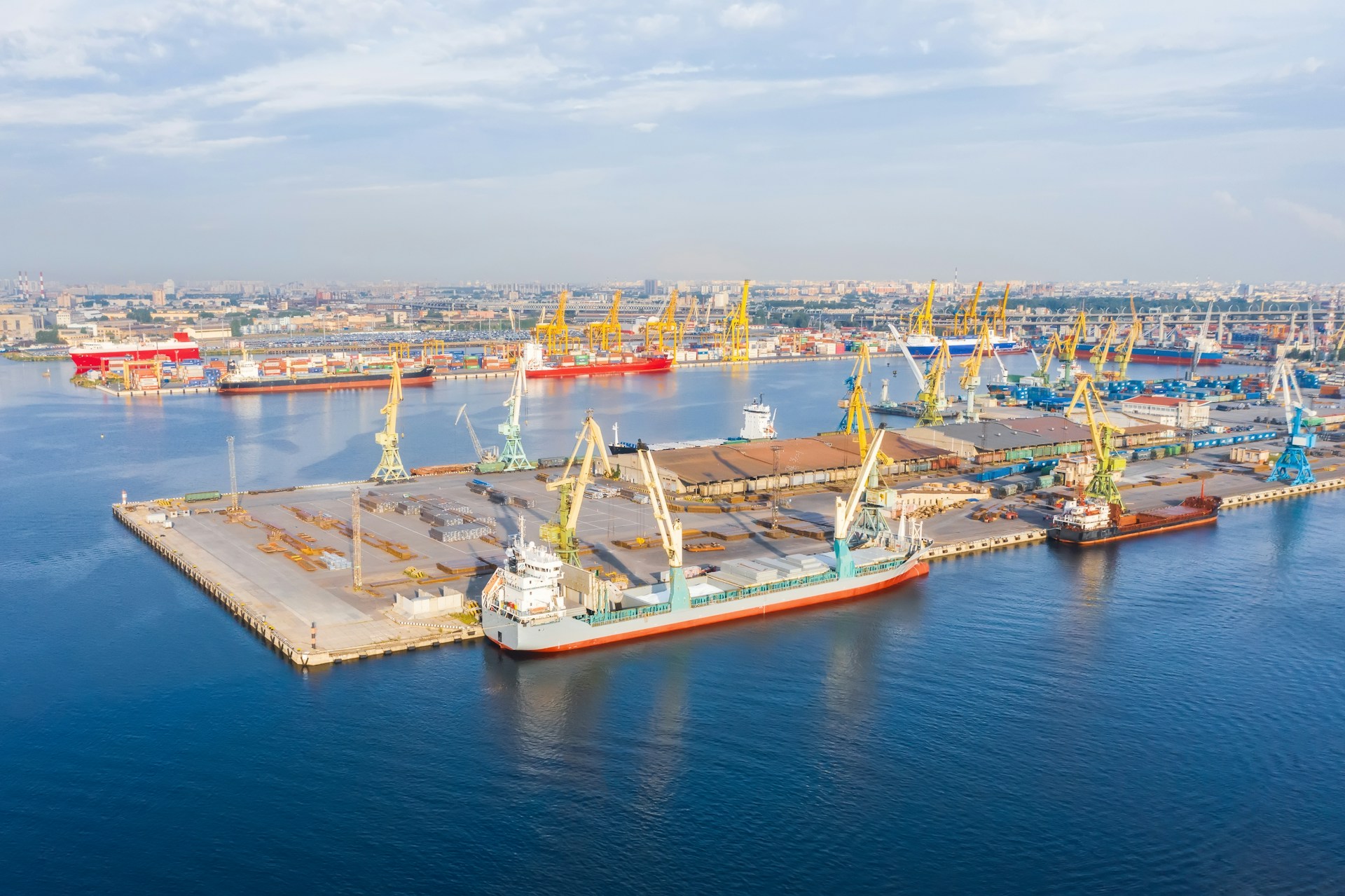Shore-Based Maritime Jobs: How to Become a Marine Surveyor

Whether you’re currently working in a maritime job at sea and are looking to transition to a shore-based maritime career, or you’re trying to decide what path to take when it comes to the world of work, have you considered becoming a Marine Surveyor?
Marine Surveyors play a vital role in the maritime industry, ensuring the safety and seaworthiness of vessels and protecting the interests of shipowners, insurance companies, and the general public. Their expertise encompasses a wide range of tasks, from inspecting ships to investigating maritime incidents.
In this post, which is one of a series looking at different shore-based jobs in the maritime industry, we’re going to take a look at what a Marine Surveyor does, the skills and attributes needed to become a successful Marine Surveyor, and also give you a few tips on how to pursue this role as a career in the maritime industry.
Read more: Shore-Based Maritime Jobs: Port & Harbor Management Jobs
What does a Marine Surveyor do?
A Marine Surveyor’s job is diverse and involves inspecting, assessing, and reporting on the condition and safety of vessels. They work on various types of watercraft, including cargo and container ships, passenger ships, yachts, and offshore platforms. The job primarily revolves around ensuring that these vessels comply with national and international maritime regulations.
The key responsibilities of a Marine Surveyor
This is an overview of the main duties and responsibilities of a Marine Surveyor.
Inspection of vessels
Marine Surveyors conduct detailed inspections of ships, examining the structural integrity, machinery, and overall condition. These inspections may be routine, as part of periodic maintenance, or performed after a vessel has undergone repairs or modifications. Surveyors look at everything from the hull and superstructure to the electrical systems and engines, ensuring that everything is in working order.

Safety and compliance
Surveyors ensure vessels meet local and international regulations, such as those set by the International Maritime Organization (IMO) or flag state administrations. These regulations encompass safety equipment, environmental standards, and crew certification. Compliance is essential for a vessel to remain operational and avoid penalties.
Damage assessment
Marine Surveyors often inspect vessels that have been involved in accidents, such as collisions, groundings, or fires. In these cases, they assess the extent of the damage and recommend repairs. They may also determine whether a ship is seaworthy following the incident or if it should be decommissioned. Their findings are typically included in a detailed report submitted to the vessel’s owner, insurer, or regulatory body.
Read more: Shore-Based Maritime Jobs: What Does a Maritime Lecturer Do?
Cargo inspection
Marine Surveyors also inspect cargo on board ships to ensure it has been properly loaded, stowed, and secured. This is especially important for hazardous materials, oversized items, or delicate goods. Proper cargo handling is critical for maintaining the stability of the ship during its voyage.
Valuation and insurance surveys
Surveyors perform inspections for the purpose of insurance and valuation. Shipowners may need to have their vessels appraised for insurance purposes or financing, and Marine Surveyors provide these valuations based on the vessel’s condition, age, and market trends.
Investigations
In cases of maritime accidents or incidents, Marine Surveyors often play a role in investigations. They work alongside law enforcement or regulatory bodies to determine the cause of an accident and evaluate whether any parties were at fault. This aspect of the job requires strong analytical and forensic skills.
Consulting and advising
Many Marine Surveyors provide consulting services to shipbuilders, owners, or insurance companies. They may be asked to advise on ship design, repairs, or modifications, offering their expert opinion on how to best maintain or improve a vessel.

Some skills and interests needed to be a Marine Surveyor
As with many other shore-based jobs in the maritime industry, working as a Marine Surveyor requires a unique blend of technical skills, industry knowledge, and personal interests. The job is highly specialized and often demands a deep understanding of ship construction, maritime law, and engineering.
Understanding of ship design and construction
Marine Surveyors must have a solid understanding of shipbuilding techniques and the various materials used in construction. This knowledge helps them assess the structural integrity of vessels and identify potential issues before they become serious problems.
Mechanical and electrical systems knowledge
A ship is a complex machine with numerous interconnected systems. Surveyors need to know how a vessel’s propulsion systems, navigation equipment, and electrical systems work to ensure they are functioning properly.
Knowledge of maritime regulations
Marine Surveyors must stay up-to-date on the latest national and international maritime laws, including those related to safety, environmental protection, and crew certification. A surveyor’s ability to ensure compliance with these regulations is critical to their role.
Attention to detail
Attention to detail is critical when working in both shore-based maritime jobs and in jobs at sea. A Marine Surveyor must be meticulous and thorough in their inspections, as even small issues can lead to major safety concerns. Whether they’re examining a hull for cracks or ensuring the correct load of cargo, their eye for detail is critical.
Problem-solving skills
Marine Surveyors often encounter challenging situations, such as investigating the cause of an accident or diagnosing a mechanical failure. Strong problem-solving skills are essential for identifying the root cause of issues and determining how best to resolve them.

Physical fitness
The role of a Marine Surveyor is physically demanding. Surveyors frequently climb ladders, squeeze into tight spaces, and spend long hours on their feet while inspecting ships. Good physical health and stamina are essential.
Communication skills
Marine Surveyors write detailed reports on their findings, often for an audience that may not have a technical background. The ability to communicate complex information in a clear and concise manner is crucial. Additionally, surveyors must work well with shipowners, crew members, and insurance professionals, meaning interpersonal skills are also important.
Interest in the maritime industry
A genuine interest in ships, boating, and the maritime industry is a must. Marine Surveyors often have a passion for the sea and a curiosity about how ships operate. This passion can make this sometimes-demanding job more fulfilling.
How to become a Marine Surveyor
Like other land-based jobs in the maritime industry, such as marine regulatory authority jobs, the path to becoming a Marine Surveyor typically involves a combination of formal education, industry experience, and certification. The career is highly specialized, so it’s important for aspiring surveyors to follow a structured route to gain the necessary skills and qualifications.
Maritime studies
Many Marine Surveyors hold degrees in maritime studies, marine engineering, naval architecture, or related fields. These programs provide a strong foundation in ship design, construction, and operation.
Engineering or technical degrees
A degree in mechanical, electrical, or civil engineering can also be an asset for those looking to enter the field, as it provides a solid technical background useful in understanding vessel systems and structures.

Professional qualifications
Some Marine Surveyors may come from a seafaring background, having worked as ship Masters (captains), Chief Engineers, or high ranking Marine Officers. These professionals often transition into surveying after gaining years of experience working at sea.
Read more: Tips to Read Before Switching to a Shore Based Maritime Job
Industry experience
Practical experience in the maritime industry is essential for becoming a successful Marine Surveyor. Many surveyors have previously worked in shipyards, marine engineering, or as part of a ship’s crew. This hands-on experience is invaluable for understanding the intricacies of ship construction, operation, and maintenance.
Certification
Marine Surveyors can enhance their credentials by obtaining certification from recognized bodies such as:
- The International Institute of Marine Surveying (IIMS)
- The Society of Accredited Marine Surveyors (SAMS)
These organizations offer courses, training programs, and certifications that demonstrate a surveyor’s expertise and commitment to the profession. Certification can also increase job prospects and earning potential. If you’re not in the United Kingdom or United States, however, an internet search should give you some options closer to where you’re located.
Continued professional development
The maritime industry is constantly evolving, with new regulations, technologies, and best practices emerging regularly. Marine Surveyors need to stay current with these changes by pursuing continuing education and attending industry conferences or workshops.
Career opportunities and outlook
Marine Surveyors can work independently as consultants, or they may be employed by shipping companies, insurance firms, or regulatory agencies.
With the growing complexity of international shipping and increasing safety and environmental regulations, the demand for skilled Marine Surveyors remains strong. Additionally, the ongoing expansion of the offshore energy sector, including wind farms and oil platforms, has created new opportunities for Marine Surveyors to apply their expertise.

In terms of job satisfaction, many Marine Surveyors find the work rewarding due to its variety, technical challenges, and the opportunity to work closely with ships and maritime equipment. While the job can be demanding, with irregular hours and travel involved, it offers a dynamic and fulfilling maritime career path for those passionate about the sea and its vessels.
Should you become a Marine Surveyor?
Becoming a Marine Surveyor offers a unique career opportunity for those interested in ships, engineering, and maritime law. It requires a blend of technical expertise, problem-solving skills, and a passion for the maritime world.
With the right education, experience, and certifications, aspiring Marine Surveyors can enjoy a dynamic career in the maritime industry ensuring the safety and efficiency of the vessels that keep global trade and transportation moving.
Read the previous article in this series: Shore-Based Marine Jobs: Maritime Recruitment Officer
Read the next article in this series: Shore-Based Maritime Jobs: What is a Shipbroker Job?

Eve Church
Eve is Martide's content writer, publishing regular posts on everything from our maritime recruitment and crew planning software to life at sea. Eve has been writing professionally for more than two decades, crafting everything from SEO-focused blog posts and website landing pages to magazine articles and corporate whitepapers.
UK

is the only site for maritime jobs



